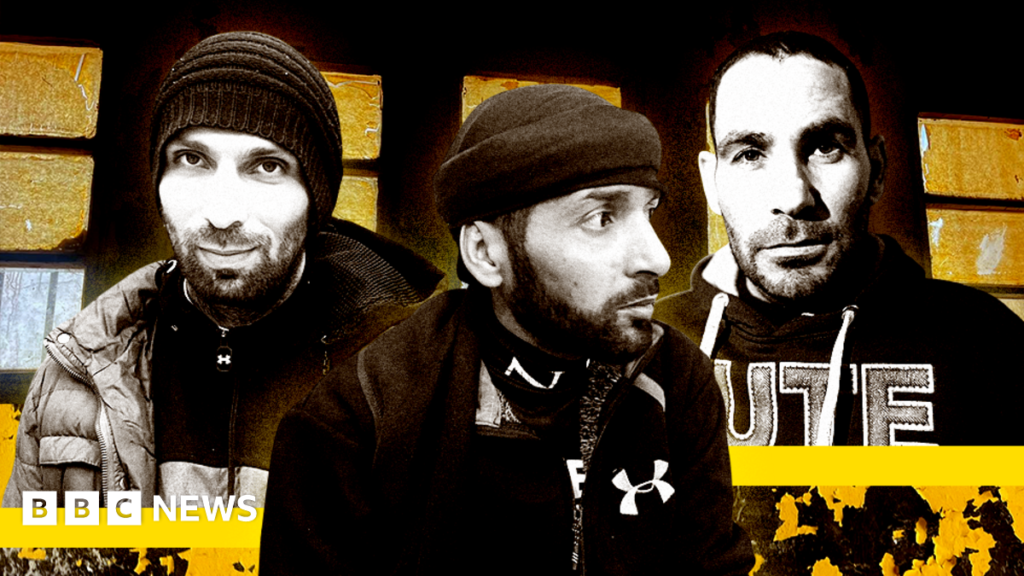]
These accounts paint a picture of a place with no hope, only pain.
The prisoners spent much of their time in silence with no access to the outside world, so it is no surprise that they say they knew nothing of the rebel Islamist group Hayat Tahrir al-Sham’s (HTS) rapid advance in Syria until they were broken free that morning.
Qasem said they could hear what sounded like a helicopter taking off from the hospital grounds before the men’s shouts in the corridors. But in the windowless cell they couldn’t be sure.
Then the doors opened, and the freed inmates began running as fast as they could.
“We ran out of the prison. We ran from fear too,” Rakan says, his thoughts on his young children and wife.
At one point in the chaos, he says, “I was hit by a car. But I didn’t mind. I got up and carried on running.”
He says he will never go back to Saydnaya again.
Adnan, too, says he couldn’t look back at the prison, as he ran crying towards Damascus.
“I just kept going. I can’t describe it. I just headed for Damascus. People were taking us from the road in their cars.”
He now fears each night when he goes to sleep that he will wake in the prison, and find it was all a dream.
Qasem ran to a town called Tal Mneen. It was there that a woman who provided the freed prisoners with food, money and clothing told them: “Assad has fallen”.
He was brought to his hometown where celebratory gunfire rang out and his tearful family embraced him.
“It’s like I am born again. I can’t describe it to you,” he says.
Additional reporting by Nihad Al-Salem








